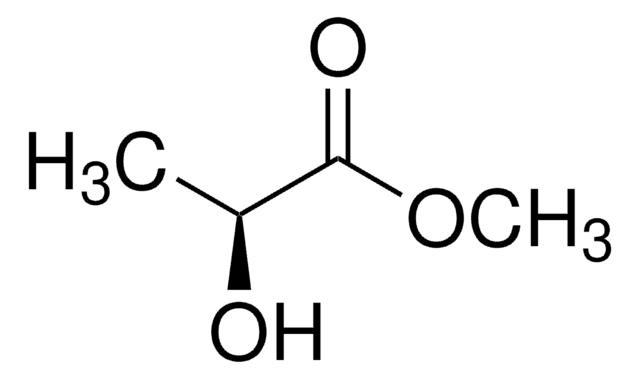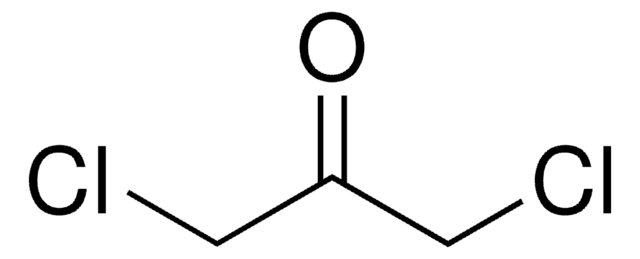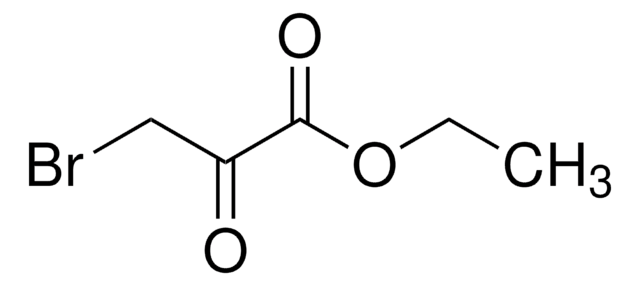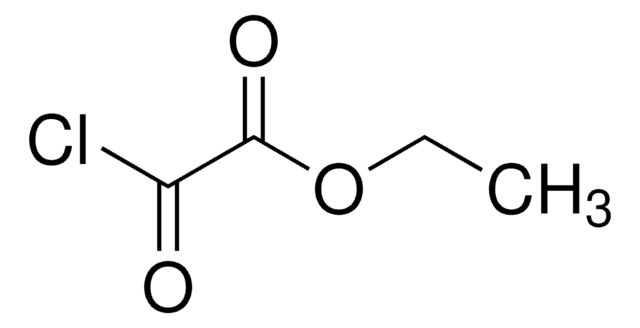371173
Methyl pyruvate
90%, technical grade
Synonym(s):
Pyruvic acid methyl ester
About This Item
Recommended Products
grade
technical grade
Quality Level
Assay
90%
form
liquid
refractive index
n20/D 1.404 (lit.)
bp
134-137 °C (lit.)
solubility
ethanol: soluble 1.1 g/10 mL, clear, colorless to almost colorless
density
1.13 g/mL at 25 °C (lit.)
functional group
ester
ketone
storage temp.
2-8°C
SMILES string
COC(=O)C(C)=O
InChI
1S/C4H6O3/c1-3(5)4(6)7-2/h1-2H3
InChI key
CWKLZLBVOJRSOM-UHFFFAOYSA-N
Looking for similar products? Visit Product Comparison Guide
General description
Application
Signal Word
Warning
Hazard Statements
Hazard Classifications
Flam. Liq. 3
Storage Class Code
3 - Flammable liquids
WGK
WGK 3
Flash Point(F)
116.6 °F - closed cup
Flash Point(C)
47 °C - closed cup
Personal Protective Equipment
Regulatory Listings
Regulatory Listings are mainly provided for chemical products. Only limited information can be provided here for non-chemical products. No entry means none of the components are listed. It is the user’s obligation to ensure the safe and legal use of the product.
FSL
Group 4: Flammable liquids
Type 2 petroleums
Hazardous rank III
Water insoluble liquid
JAN Code
371173-BULK:
371173-25G:
371173-100G:
371173-VAR:
Choose from one of the most recent versions:
Certificates of Analysis (COA)
Don't see the Right Version?
If you require a particular version, you can look up a specific certificate by the Lot or Batch number.
Already Own This Product?
Find documentation for the products that you have recently purchased in the Document Library.
Customers Also Viewed
Our team of scientists has experience in all areas of research including Life Science, Material Science, Chemical Synthesis, Chromatography, Analytical and many others.
Contact Technical Service










